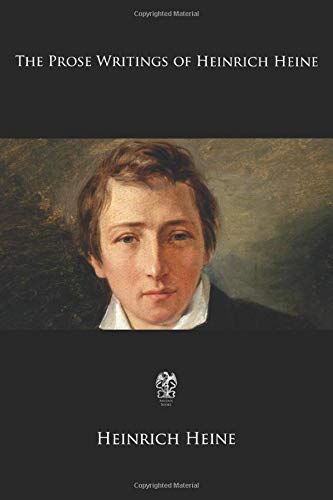What do you think?
Rate this book


177 pages, Paperback
First published January 1, 1887
...In the spiritual as well as in the worldly hierarchy I have attained neither office nor rank; I have accomplished nothing in this beautiful world; nothing has become of me--nothing but a poet.
But no, I will not feign a hypocritical humility, I will not depreciate that name. It is much to be a poet, especially to be a great lyric poet, in Germany, among a people who in two things--in philosophy and in poetry--have surpassed all other nations. I will not with a sham modesty--the invention of worthless vagabonds--depreciate my fame as a poet. None of my countrymen have won the laurel at so early an age; and if my colleague, Wolfgang Goethe, complacently writes that 'the Chinese with trembling hand paints Werther and Lotte on porcelain,' I can, if boasting be in order, match his Chinese fame with one still more legendary, for I have recently learned that my poems have been translated into the Japanese language.
...But at this moment I am as indifferent to my Japanese fame as to my renown in Finland. Alas! fame, once sweet as sugared pine-apple and flattery, has for a long time been nauseous to me; it tastes as bitter to me now as wormwood. With Romeo, I can say, 'I am the fool of fortune.' The bowl stands filled before me, but I lack a spoon. What does it avail me that at banquets my health is pledged in the choicest wines, and drunk from golden goblets, when I, myself, severed from all that makes life pleasant, may only wet my lips with an insipid potion? What does it avail me that enthusiastic youths and maidens crown my marble bust with laurel-wreaths, if meanwhile the shrivelled fingers of an aged nurse press a blister of Spanish flies behind the ears of my actual body. What does it avail me that all the roses of Shiraz so tenderly glow and bloom for me? Alas! Shiraz is two thousand miles away from the Rue d'Amsterdam, where, in the dreary solitude of my sick-room, I have nothing to smell, unless it be the perfume of warmed napkins. Alas! the irony of God weighs heavily upon me! the great Author of the universe, the Aristophanes of Heaven, wished to show the petty, earthly, so-called German Aristophanes that his mightiest sarcasms are but feeble banter compared with His, and how immeasurably he excels me in humour and colossal wit.